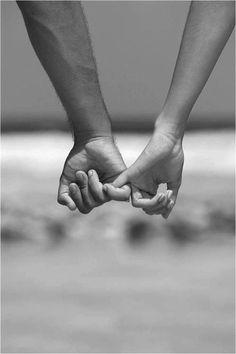
On losing your first love.
It’s hard being alone after having been with someone for a long time. It’s hard to detach from your first love, to not have that person on whom you can rely for comfort, happiness and safety. You miss falling in love every time you see that person — your best friend — walk towards you.
I recently found myself in this situation, alone after almost two years of partnership. My boyfriend was mother and father, friend and lover to me. Losing all of those people at once — and knowing that he lost the same — was heartbreaking. But knowing that he was one less black man and I one less black women the other could protect was the most heartbreaking part of all.
I began to wonder, however, if this solitude was the ultimate test of my feminist identity. When we broke up, I was 18 and alone on a frigid campus in the dead of winter, miles away from anything or anyone I associated with home. I was upset. I spent days crying in my room, only leaving to eat and go to class. I couldn’t sleep. But I was also lucky because I had just made a best friend who was also going through a long-distance breakup. I found strength and reassurance in solidarity and we began to function as two parts of a whole.
But I still felt lonely. I realized that I would continue to feel lonely as long as I depended on anyone else, that I had to learn how to rely on myself first and foremost. If I was to become the wildly successful woman I always dreamed I would be, I knew I’d have to be the one to pick myself up. So I desperately tried to find a balance between vulnerability and resilience.
I soon found that while self-sufficiency is an important tenant of feminism, as a black woman it was also just as important for me to resist the pressure to be impenetrable or superhuman. Black women are often stereotyped as “strong” and this was certainly a value with which I was raised. I felt like I had an on-off switch: Whenever someone waved at me or smiled at me on campus, I could connect some circuit in my brain that sparked a smile and forced me to appear strong and unaffected by my pain. But when I got back to my room and was alone, the circuit broke.
Alone, I realized how much time I had now that I was relieved of my commitment to my significant other. I realized that I had been held responsible for my time in my relationship. I had felt obligated to report back all minutes of my day to this other person, to text back within a certain time frame and to give updates, because I just accepted that he was entitled to my time. These rules were not laid out, but seemed to be the unspoken social code of a heteronormative relationship.
Had I shared my time this way because I am a woman and felt conditioned to concede my independence? Did I overcompensate and give more than I got because of my gender? Or was race involved? Did we share our time this way based on having been socially conditioned to feel that our lives were never truly our own as black individuals? Did we share our time this way based on my fear for his safety as a black man in America and his for mine as a black woman surrounded by white men on a college campus? All of these gendered and racialized dynamics were ultimately inseparable and uncontrollable within the context of our relationship and I didn’t realize they existed until all was said and done.
This experience has taught me that going forward I must prioritize my values and reassess what I am willing to give for what I get in exchange. I’m still trying to find this balance between loving myself and others as well as finding balance in all pockets of my life. It’s not easy, though. I always seem to be juggling and performing as a woman of color.
Ultimately, as children of a patriarchal society, we are all family and all connected — whether romantically or in any number of other ways. Yet we always seem to look for differences and act out in violence. All I can try to do is strive to find my place within it all in a way that makes me feel strong and proud.

